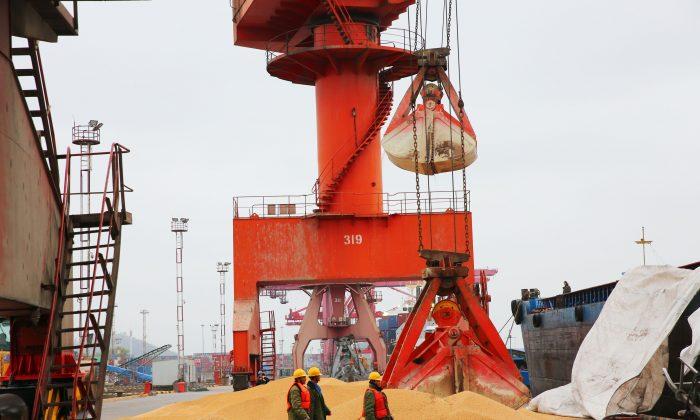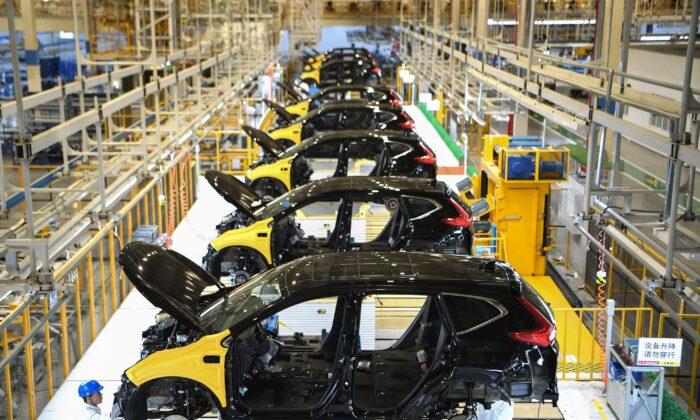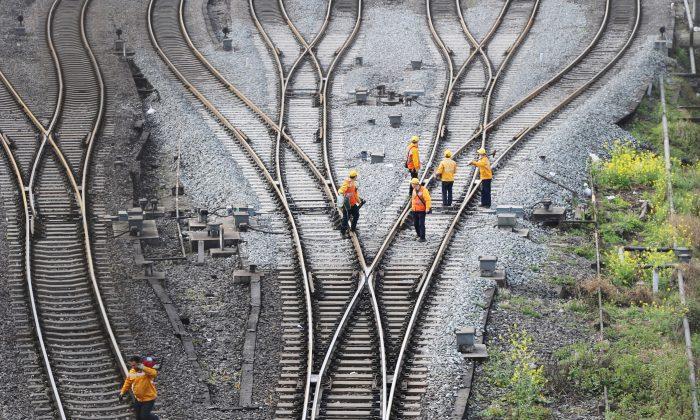The Trump administration’s three-year strategy to decouple China from American high-tech supply chains was succeeding. But chaos from COVID-19 lockdowns of U.S. businesses and schools have now presented the CCP with a once-in-a-lifetime opportunity to achieve its goal of supplanting the United States as the world’s leading economic, diplomatic, and military power, according to Horizon Advisory.
Beijing is already working hard to bolster its image around the world by claiming that it successfully curbed the spread of the CCP virus.
“After covering up the novel infection and unleashing it on the world, Beijing’s rulers bought up the world’s supply of protective gear and respirators. Then they sell these critical goods to Italy while portraying themselves as the heroic humanitarian savior of the world, not unlike a pyromaniac who takes credit for calling the fire department.”
Ellis said that as the economies in the West shut down due to the pandemic, Beijing uses the opportunity to extend its soft power and tighten its grip on global supply chains.
The Horizon Advisory report has documented statements and writings from CCP officials and leading players in state-run industries.
On March 12, Song Zhiping, representative to the 15th Party Congress, former party committee secretary, and chairman of the state-owned China National Building Materials Group Corporation declared:
China will “turn crisis into opportunity: It will transform and upgrade and strengthen its position in the international industry chain.” Chinese enterprises “must not just resume production. They must also boost economic development and exposure to the world in order to speed up the adjustment of the industrial structure, to enhance competitiveness in the international industrial chain, and to build an advance strategic positioning.”
The CCP Central Committee identifies industries to “seize in the adjustment of the international industrial chain while fighting the epidemic and resuming production.” These include 5G construction, urban high-speed rails, urban rail transit, new energy vehicles, big data in infrastructure, artificial intelligence, automobiles, electronics, ships, aviation, power equipment, and machine tools.
The Chengdu municipal government echoed the Party line on March 5, calling on enterprises and individuals to focus on turning crisis into opportunity: “Make full use of the important window after the epidemic and focus on the strategic opportunities such as the new technological revolution it will bring about, the new international market demand, and the shortcomings of supply which will need to be filled ….Deeply integrate into the global supply chain system in the fields of biomedicine, electronic information, intelligent manufacturing, and agricultural products.”
Beijing’s post-pandemic plan and the industries mentioned above are in line with its longstanding “Made in China 2025” strategy for global dominance of crucial industries.
Han Jian of the Chinese Academy of Sciences and director of the Ministry of Civil Affairs’ China Industrial Economics Association put it more succinctly on March 4: “It is possible to turn the crisis into an opportunity—to increase the trust and the dependence of all countries around the world of ‘Made in China.’”





